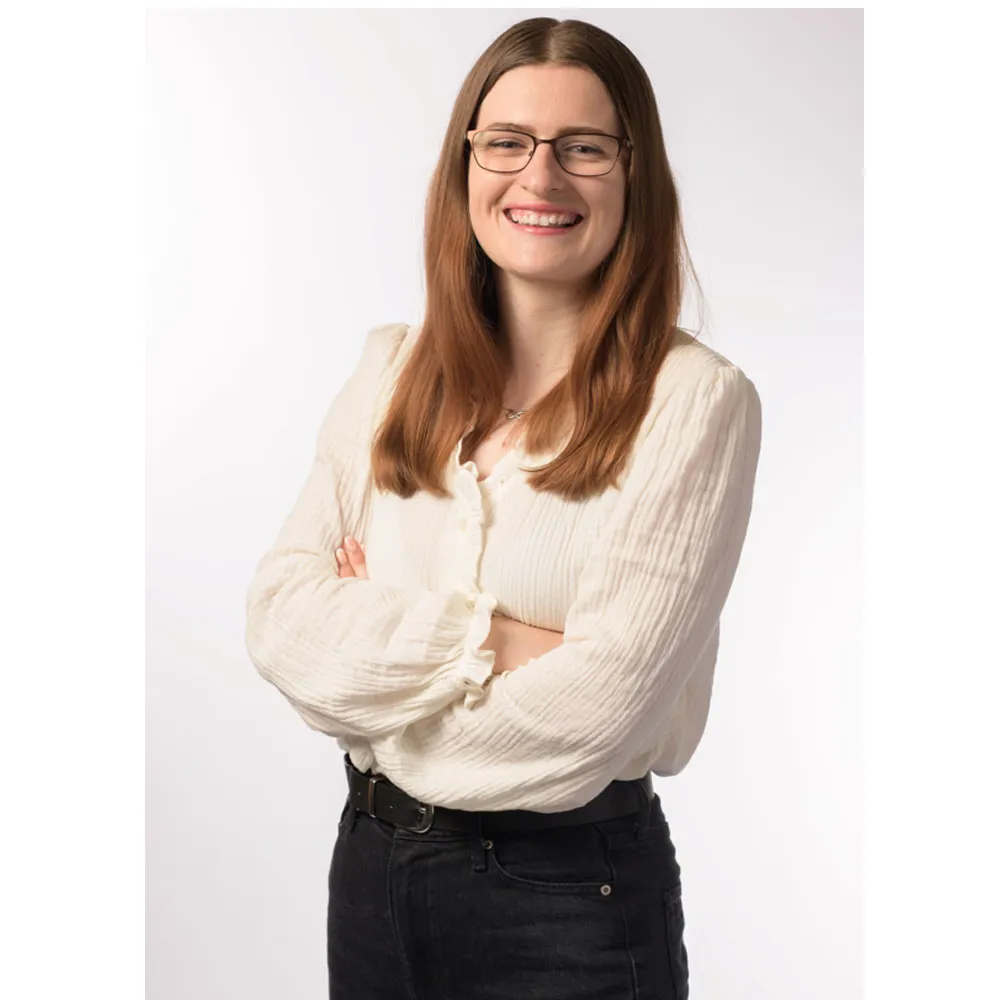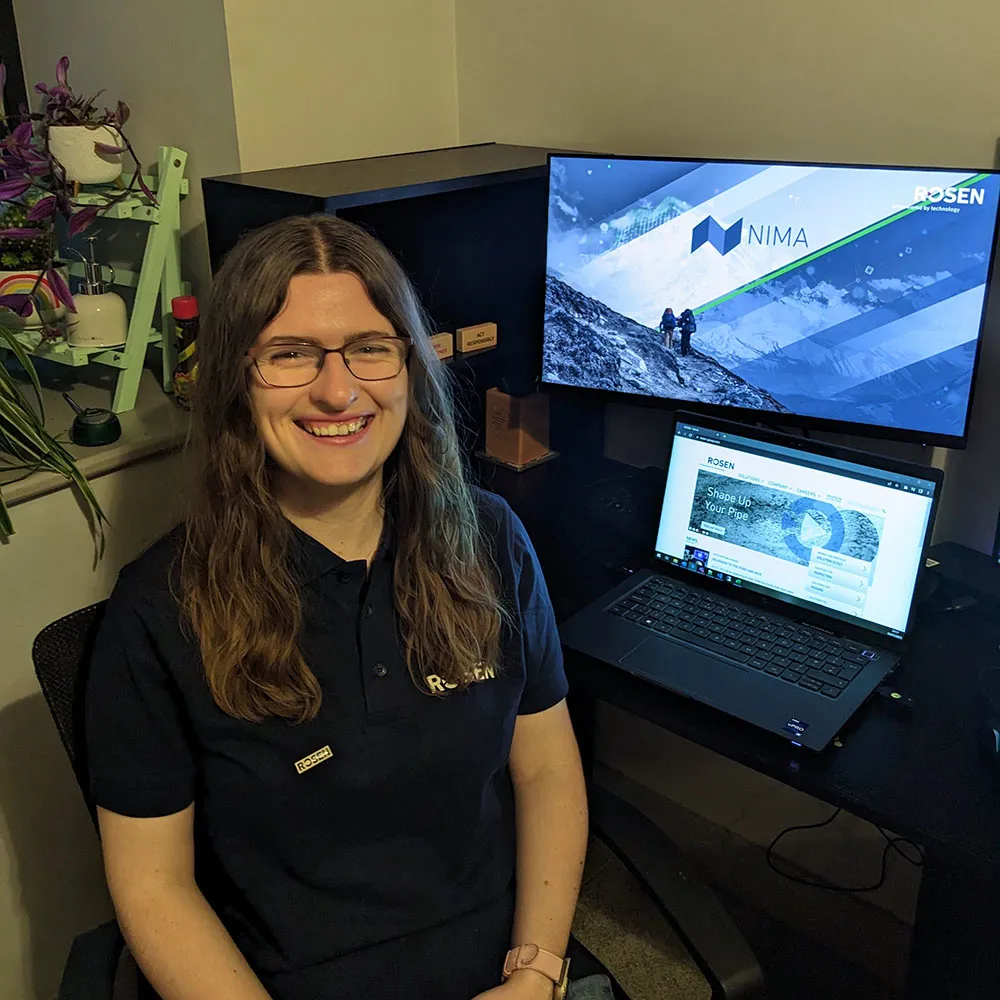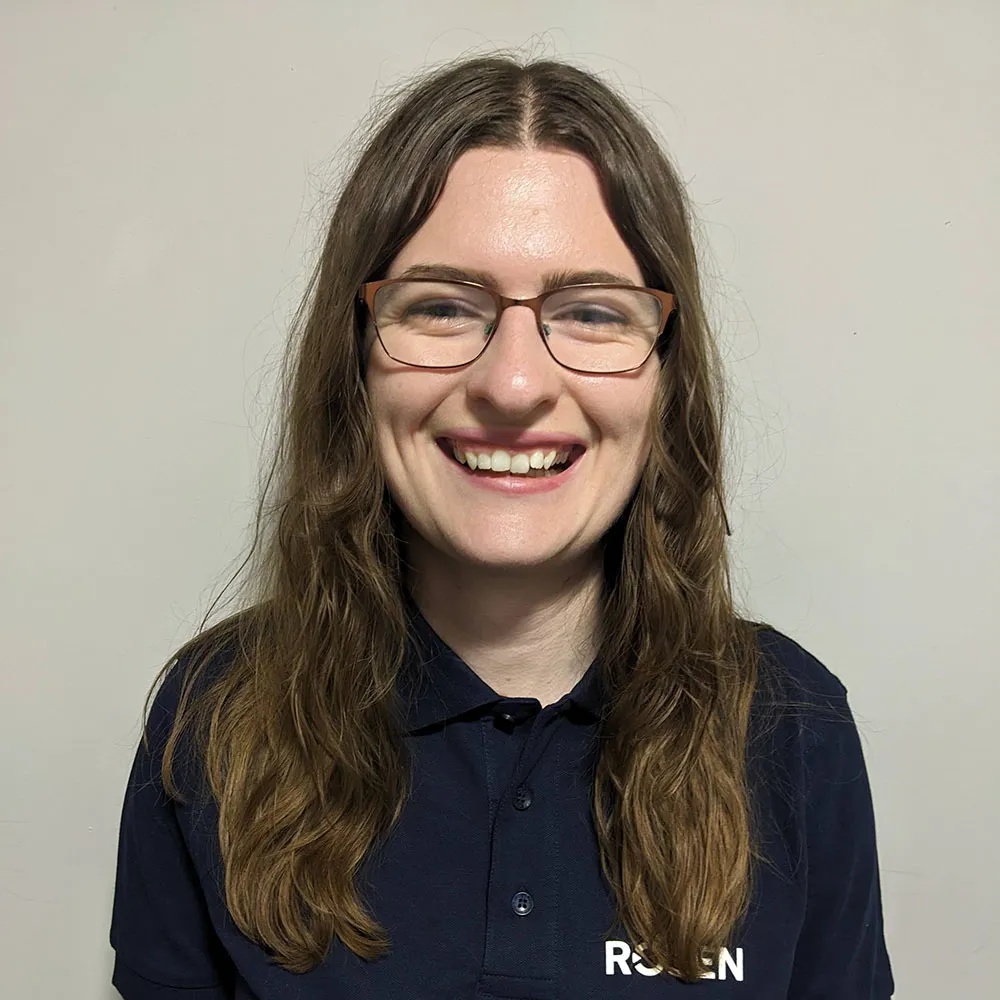Beth Clarke
Job Title: Quality and DevOps Specialist
Company you work for: ROSEN
When you were a child, what did you want to be when you grew up?
An astronaut! I've always loved space and I love the idea of potentially living on other planets in the future.
What is the biggest impact your work will or could have in the future?
As a software engineer, I have had the opportunity to work in a range of fields. The software I work on is safety critical - it performs tasks that help keep us and our planet safe from harm. From helping to prevent derailment of trains in dangerous terrain and providing voice and data services to the most remote and harsh regions on Earth, to monitoring the safety of thousands of kilometres of pipeline that transport hazardous materials, my overall impact is the same regardless of the industry: I keep people and Earth safe.
What excites you most about STEM?
STEM helps to make the impossible possible. It provides us with the skills and mindset that we need to solve societies biggest problems. There are such a wide variety of projects you can be involved in, from building vehicles and aircraft to creating AI-art or simulating the future of climate change. There are endless opportunities to innovate and create.
What or who inspired you to do your job, and what do you love most about it?
I was inspired to become a software engineer during my final year at university, when I learned to code for the first time. Programming is such a powerful tool and I wanted to have the opportunity to learn more about it and use it to do good in the world. In my job, I love that no two days are the same. I spend about half of my time coding, but the other half I get to think about large systems and how the parts all work together around the software. It's a brilliant challenge for someone like me that loves puzzles and looking at the bigger picture.
How might your role work in space, sport or on the Moon in the future?
Software is going to play a key role in the future of space exploration. We will need programmes to help regulate oxygen levels, send communications back to Earth, determine launch trajectories for space craft - and that's just the tip of the iceberg. Space is also potentially the harshest of all known environments, so we will need to build software that astronauts can trust to keep them safe, which is where the world of safety critical software comes into its own.



What do you think the future for humans in space looks like?
I think there will be three main aspects to our future in space. The first will be the rise of space tourism, where people can pay to visit space for a few hours or maybe stay in space hotels for a few days on holiday. The second is exploration. I think we will likely colonise Mars at some point in the relatively near future. We will also return to the moon and likely establish a Moon Base and create the Lunar Gateway, enabling exploration of the rest of the solar system. Finally, we will focus on defence of humanity. Space is dangerous and there are lots of threats to humanity's future. I imagine we will be deploying more spacecraft to help destroy or deflect asteroids that could collide with Earth and attempting to learn more about solar flares - explosions happening on the sun’s surface that emit intense bursts of radiation, which can damage communications systems, electronics and satellites.
Would you like to play football on the Moon one day and why?
100% - count me in! I used to be a goalie for my primary and secondary school football teams, and I'd love to try that on the moon! I think Lunar Football will be a very fun sport to play and an experience like no other.
How does the work you do now link to our Moon United campaign to play football in the future?
As a software engineer who specialises in ensuring software quality, my current work involves ensuring our software complies with various international safety standards and regulations. I look at not just our code, but also our processes, culture and team to see where quality can be improved to ensure we deliver reliable products. Essentially this means I'm good at looking at the rules and seeing how well we abide by them. This is great when trying to come up with the rules for lunar football and seeing how the earth rules need to be amended to work in the ecosystem of the moon.
What were your favourite subjects at school and why?
My favourite subjects were Physics and Media Studies, which might seem like a strange combination! I loved them because they both gave me a chance to be creative and perform experiments. In Physics, this was done in a lab where you would test a hypothesis with the scientific method. In Media Studies, this was done by trying out new filming techniques and editing tools to try and produce a piece of film that conveyed the right meaning. Being creative is really important to me, and working in STEM gives me many opportunities to keep being creative which helps me stay fulfilled and motivated.
What advice would you give to a young person considering a career in STEM?
Get a mentor! This could be a friend, a teacher, or a mentor from organisations like Stemettes or The Girls Network. Mentors help you to achieve your goals and reach your full potential. They also open doors for you that you could never have imagined. They are a great source of support and encouragement which you will find invaluable.
